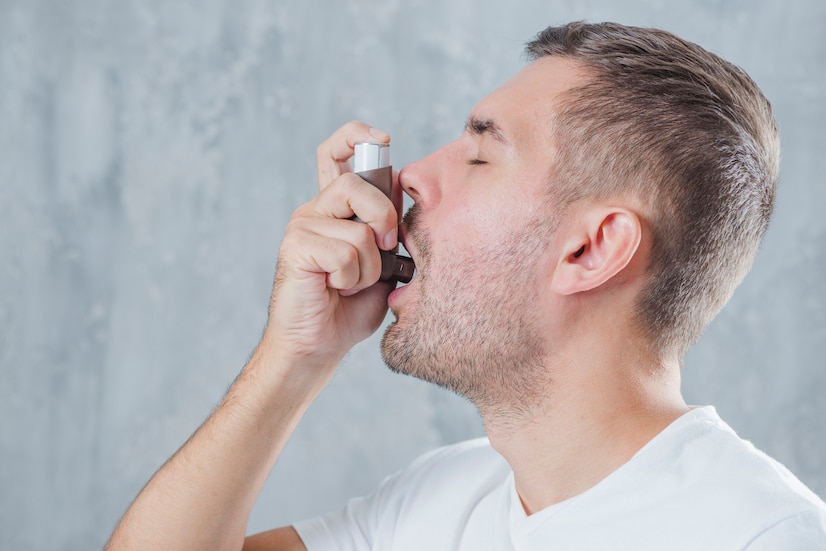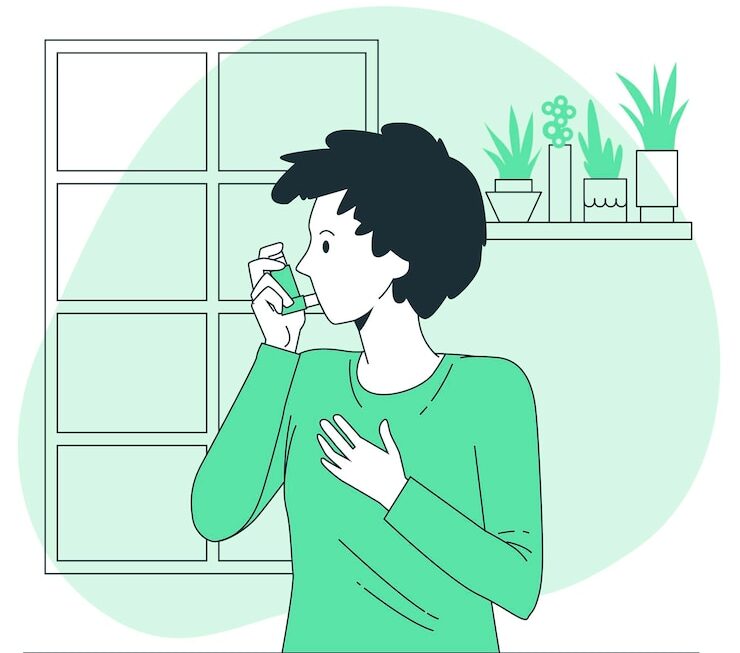What the Right Diet Can Do for Your Asthma
Doctors have said that a well-balanced diet keeps your mind and body healthy. So you may be curious whether there are foods that can help manage a chronic condition like asthma. After all, getting the proper nutrients supports the immune system and improves overall health– including lung health.
What Is the Connection Between Food and Asthma?
Many food ingredients contain antioxidants, vitamins, and minerals that help remove toxins and reduce inflammation. However, do you notice why doctors ask if you’re allergic to a food when they take initial history? It’s because some foods contain allergens and can trigger an asthma attack.
Sulfites, for instance, may trigger asthma in others, according to the Asthma and Allergy Foundation of America. People with food allergies also discovered that eating the foods they’re allergic to triggers asthma symptoms.
Foods That Can Help Control Asthma
You can’t use food to cure asthma, but certain foods offer nutrients that support lung function. These are:
Vitamin D
There’s solid evidence that low vitamin D levels increase the risk of asthma in adults and children. Taking vitamin D supplements reduces asthma attacks in adults. Continued supplement intakes also reduce upper respiratory infections such as the common cold.
Food sources of vitamin D include:
- Eggs
- Cheese
- Liver
- Milk
- Mushrooms
- Orange juice
- Fatty fish like mackerel, salmon, and tuna
Important note: If you are allergic to eggs or milk, avoid them as sources of Vitamin D. Rather than improving your symptoms, these food sources can trigger or worsen your asthma.
Vitamin A
A study found that children with asthma have lower levels of vitamin A than children without asthma. Researchers also found that this vitamin is crucial in early lung development and immune function.
Food sources of vitamin A include:
- Broccoli
- Cantaloupe
- Carrots
- Leafy greens like kale, spinach, and romaine lettuce
- Sweet potatoes
Vitamin E
As a fat-soluble vitamin, Vitamin E has several forms, one of which is alpha-tocopherol. Tocopherol acts as an antioxidant that neutralizes free radicals that can damage healthy cells.
Food sources of vitamin E include:
- Almond
- Broccoli
- Hazelnut
- Kale
- Mustard greens
- Raw seeds
- Swiss chard
- Fortified foods such as cereal, fruit juice, and spreads
Foods That Can Trigger Asthma
An allergic reaction can trigger asthma. This is why you should avoid certain foods if you have this chronic condition. Make sure to consult with your doctor first.
Common Allergens
It’s not unusual for people with asthma to also have food allergies. The most common food allergens include:
- Dairy products
- Peanuts
- Shellfish
- Tree nuts
- Wheat
How can you tell if you have food allergies that trigger your asthma? Common symptoms are rashes, hives, nausea, and diarrhea. You’ll likely experience these symptoms, followed by coughing and wheezing. If you don’t take your medication immediately, your throat may swell and cause difficulty breathing.
If you think some foods trigger your condition, don’t hesitate to tell your doctor about it. They can administer allergy tests to confirm whether or not you’re allergic to these foods. Make sure to always keep medication close to you in case of flare-ups.
Salicylates
Some people with asthma may be sensitive to salicylates, compounds found in coffee, teas, and spicy foods. Although this is uncommon, people exposed to these compounds should be extra careful as they’re likely to experience flare-ups.
Sulfites
Sulfites are preservatives usually found in preserved foods and beverages, including:
- Alcohol
- Dried fruits
- Bottled lemon or lime
- Pickled foods
- Maraschino cherries
- Shrimp
People with asthma with a high intake of sulfites in their diet may notice their symptoms worsening. Consuming foods that contain sulfites, especially wine, can trigger an asthma attack.
Foods That Cause Flatulence
Eating more than what you can handle and foods that cause gas can pressure your diaphragm. This can result in chest tightness and trigger asthma, especially if you have acid reflux.
Foods that cause gas include:
- Beans
- Cabbage
- Carbonated drinks or soft drinks
- Fried foods
- Garlic
- Onions
Other Triggers to Avoid
If you have asthma, try to record what triggers your condition and avoid them. Other than avoiding eating trigger foods, you should also stay away from the following:
- Adverse weather: Wear appropriate clothing for different weather conditions.
- Air pollution: Wear a mask to avoid inhaling chemical fumes, smog, and vehicle fumes.
- Mold and Spores: It’s crucial to do a deep clean to remove molds and mildew. Breathing spores may trigger an asthma attack.
- Dander: If you have pets at home, clean your place regularly and give them baths to remove dander.
- Smoke Exposure: Steer clear of campfires, cigarette smoke, and wood fireplaces.
Options for Treatment
Up till now, there’s still no cure for asthma. But don’t lose hope. Many people can manage their symptoms through a treatment plan that combines improving lifestyle, avoiding triggers, and maintaining medications.
Medications that your doctor may prescribe you include:
- Biologic treatment: new specialist treatments that use antibodies produced from cells
- Maintenance therapy: anticholinergics
- Medication for controlling symptoms: beta-agonists and corticosteroids taken through an inhaler or by mouth
- Oral or IV corticosteroids: for severe asthma attacks
Manage asthma proactively, not just with medication but also by eating healthy and avoiding triggers. Here are some tips to prevent asthma symptoms:
- Take note of when and how asthma or allergy symptoms appear to identify them clearly
- Follow the treatment plan of your doctor. Keep up with appointments and take medications as prescribed
- Make a conscious effort to avoid trigger foods, environments, and activities that can worsen your condition
- Maintain a healthy weight and quit unhealthy vices like smoking
- Keep your diet low in processed and fatty foods and high in fresh fruits and vegetables
Establish an Asthma Action Plan
Same as there’s no specific cure for asthma, there’s also no particular diet that will work. Every person’s body is unique and has different needs for medication and diet. Now that you know certain foods can ease or trigger your asthma, keep track of them and work with a doctor.
Doctors at Carolina Asthma and Allergy Center provide patient-focused care for asthma to all ages. Schedule your visit with a certified allergist or immunologist to review your current asthma control plan, triggers, and medications.


















